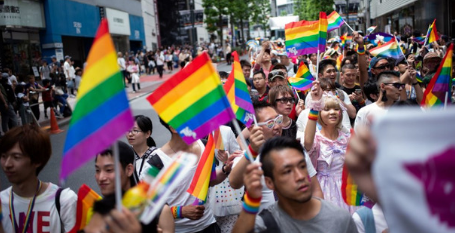The Japanese government on Monday (8 July) argued that LGBT people ‘were not expected’ and are therefore not covered by the Constitution’s marriage clause. Thirteen couples are suing the Japanese government in landmark court cases to gain recognition of their unions. Government lawyers maintain that Article 24 of the Constitution refer to a man and a woman only, saying LGBT people were ’not expected’ when the Constitution was written - and that marriage laws therefore do not apply to Japan’s LGBT Community. Meanwhile, lawyers acting on behalf of the plaintiffs argue that separate articles in the Constitution (specifically, Articles 14 and 13) should guarantee LGBT people equal treatment and the pursuit of happiness. The cases continue.
To read more, click here!












 列印版本
列印版本



















讀者回應
The focus of the article is largely on the Japanese Constitution. The Japanese did not write that Constitution. The Americans did! General MacArthur rejected the draft of a Japanese Committee and gave two of his American staff one week to write a new one. Bits and pieces of various drafts were included and MacArthur agreed to Japanese requests that the government have two chambers rather than merely one. The new draft surprised many Japanese. But they quickly passed this American Constitution as an amendment to the Meiji Constitution and there have been no amendments since then.
So the finger of blame for Article 24 points fairly and squarely at the American Occupation of Japan, much as the finger of blame for many countries still banning "sodomy" or more broadly male homosexuality today posts fairly and squarely at the British Empire.
Combing through popular fiction, law codes, religious works, medical treatises, biographical material, and artistic treatments, Leupp traces the origins of pre-Tokugawa homosexual traditions among monks and samurai, then describes the emergence of homosexual practices among commoners in Tokugawa cities. He argues that it was "nurture" rather than "nature" that accounted for such conspicuous male/male sexuality and that bisexuality was more prevalent than homosexuality. Detailed, thorough, and very readable, this study is the first in English or Japanese to address so comprehensively one of the most complex and intriguing aspects of Japanese history.
請先登入再使用此功能。